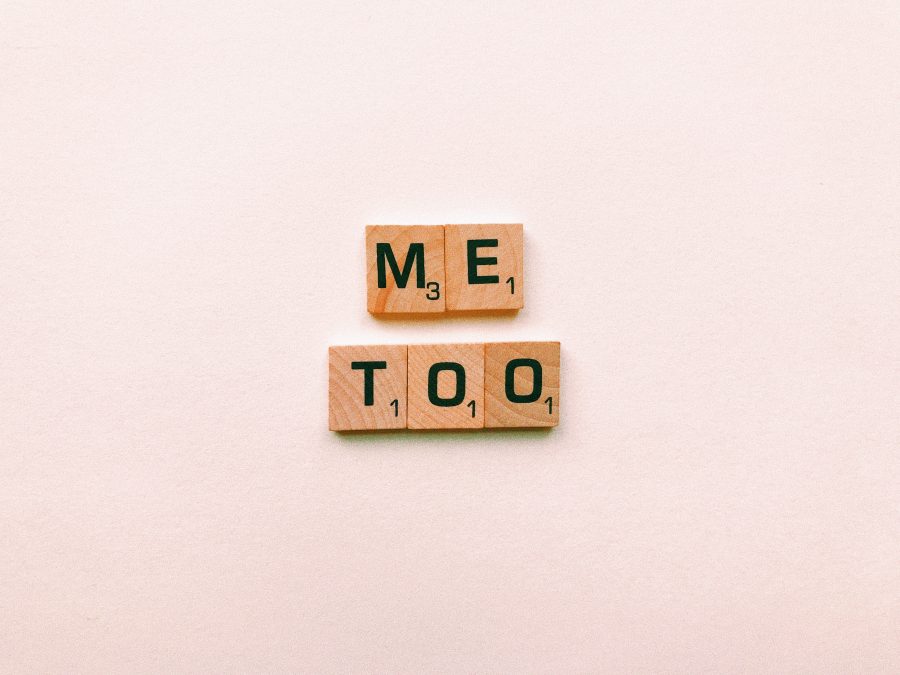The #MeToo movement, which encourages survivors of sexual assault to come forward, has become prevalent in the public eye. On red carpets celebrities are dressed in black, and stars use their performances at award shows as an act of solidarity in the name of the #MeToo movement. Hollywood itself has become a home of sorts for #MeToo as accusations are brought by those within the industry against their assaulters. Accusations against Harvey Weinstein and Matt Lauer have been presented by actresses and others in the industry in the recent months. It almost seems like each morning when you check your phone there’s a new statement about the #MeToo Campaign’s prevalence in Hollywood or a new accusation being made against a male in the industry.
With all this publicity and so many people talking about the subject, we need to ask ourselves whether or not the media is actually doing the movement good. Are the proper parts of the movement being covered by the gossip columns? Are the people on the red carpet pointing out which aspects of our world are causing the need for such a movement? Is the media coverage of the movement actually reaching the individuals the movement set out to support?
The #MeToo campaign was founded by Tarana Burke in 2006 around the concept of protecting and supporting “survivors of sexual violence, particularly young women of color.” The organization was created to fight the victim-shaming stigma that has come to exist in society, and to change the attitude that culture takes toward sexual assault.
To an extent, the public reactions to the #MeToo campaign have helped enormously. The number of women and men coming forward to confront the people who have sexual assaulted them have seemed to increase more and more . This is thought to be due in large part to the prevalence of celebrities coming forward. In a grand domino effect, the surge in numbers of reported assaults relates to the motivation of the original #MeToo Campaign. Women now feel as if they are not alone and are subsequently more likely to share their story. However, what demographic of women is the media-surged #MeToo supporting? Is it the women of “low wealth communities” which are described in the original mission statement of the campaign? Do the waves throughout the Hollywood film and music industry really matter to the vast majority of sexually assaulted people who feel powerless and undefended?
And what does this manner of publicity force society’s eyes on? Are audiences being inspired to tell their story? Or are we reading the latest gossip in Hollywood and trying to cling to pop culture through understanding which star is talking about who? People read through the ‘highlights’ of the #MeToo campaign with more of a detachment and curiosity in pop culture than an awe for the bravery of women and an inspiration for change. The audience is not being empowered; the media coverage is not allowing the goals of the original movement to flourish; the focus on the elite and wealthy in the movement does not involve the people of lower socioeconomic status – who are 12 times more likely to be sexually assaulted than the wealthy.
While the publicity of the #MeToo movement can be seen as positive and has brought courage to many young women across the nation, the focuses the media has chosen for the movement have not been so productive. There are no investigations into how to stop the societal issue; there are only investigations into individual perpetrators. In order to truly represent the motives of the original #MeToo movement, there needs to be a shift in media coverage from the lives of stars to lives of everyday people. There needs to be a shift from covering the celebrities to cases of real, middle-class people. Seeing actresses, newswomen, and directors step-forward and face their accusers does not empower those of lower classes. What will help the movement is a shift within the media to cover more stories of lower to middle class so that the greater portion of society can see people like them are stepping forward. There’s a sense of empowerment in seeing someone like yourself take life-changing action. In order for the campaign to benefit from the discussion and limelight and for strides to be made against the rape culture which exists throughout America, the conversation needs to leave the Hollywood scene and gossip columns and needs to find its way into people’s day-to-day lives, like participating in the Loyola Green Dot Program. As long as a movement is being viewed for our entertainment, how can our country take it seriously?








































































































Greyhound Opinions • Mar 25, 2018 at 9:14 pm
5